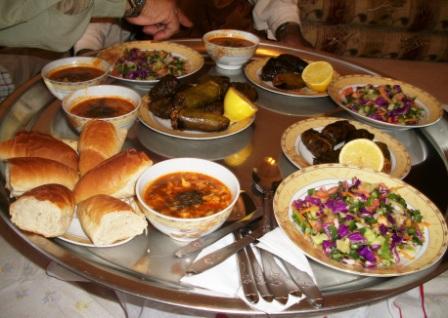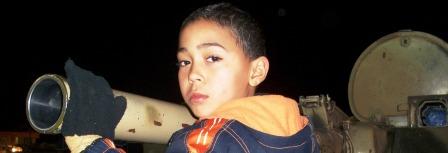 Day 5 March 15
Day 5 March 15
As my hotel was good enough to let me pay without quibble I needed to change some money but there was a problem: pettily pre-occupied with exchange rates I had rejected the hotel's and asked if there was a bank nearby.
There was the receptionist said but it did not open until 10.00 "...or maybe not at all if Qaddafi reached town". I was impressed by his black humour until I remembered all the journalists' bags in the lobby yesterday evening, my nocturnal close encounter and the technical outside. I accepted the hotel rate.
The warning from Lars, correspondent for Norwegian State Broadcasting, replayed in my head. Without visas we, like most journalists here, should not find ourselves in Qaddafi territory. And getting stuck behind through lack of a taxi fare would have been hard to explain.
Lars was a venerable and helpful veteran who had written or co-written the memoirs of Saddam Hussein's personal physician. They had sent him on a training course for war zone types in which you were instructed to keep the windows down as that way bullets pass through the vehicle rather than shattering the windows. In Bosnia his vehicle had been shot at anyway when it sped up to escape a bogus checkpoint.
We had been joined at the Scandinavians' coffee table by Heinrich and his Icelandic colleague Christian from Swedish state broadcasting. Put four Scandinavians together in a dry zone and you would be tempted to think they would talk about alcohol and they did. The moonshine stories ranged from Tehran to Saudi Arabia and included tales of illicit alcohol bring distilled in bathtubs and large decanters of spirits masquerading table-centre as jugs of water from which the local master of ceremonies would also refresh himself.
Some tales were grimmer. One state broadcaster from Sweden reporting from Cairo had recently been "air-vaced" back to Sweden after his phone conversation on a bridge in Cairo was interrupted by a near fatal stabbing in the back according to Heinrich. Unknown to the caller protestors marching under the bridge had been chanting "Death to foreigners".
Then there was the Swedish TV crew sent to Tripoli by boat. They did need visas but what do you do when the Libyan embassy in Stockholm rejects its own government. Well, you go to Brussels.
That done they chartered a ship from Malta with a crew from Associated Press, but ran into a storm that saw the ship captain heaving along with everyone else. Then they were marooned for the day when the engine packed up. The US navy were alerted about imminent rescue just in case they were not too busy but the news crews managed to get to Tripoli unaided. Once there however they could not land as they were denied landing rights. And there was a further obstacle: the boat winch had demonstrated solidarity with the engine and packed up, now refusing to draw in the anchor now I suppose sitting in the harbour after a power saw was applied to the cable. Finally they got to their Tripoli hotel where they then remained under effective hotel arrest by government edict.
Having written all this down in my notebook I patted my new wad of dinars and set off on a rapid tour of a nearby bazaar. They had some great leather footwear for sale but it was the woman's clothing shops, those in particular selling lingerie, that most attracted me. Not for the risque mannequins but the fact that the shop assistants were all male. I never saw a customer going inside so I must remain curious...who does the buying?

Shaking off such thoughts I returned to the hotel once again, this time to be picked up in a Renault Megane previously owned by someone born on 1st September 1969. I should make it clear that learning such facts was not indicative of a penchant for pastimes of a plane-spotting variety, it had serious political overtones. 1st September 1969 was, as my host Ali, had explained, the day when Qaddafi became Brother Leader. And for being born on this auspicious day all bearing their Libyan birth certificate as evidence were entitled to a brand new half-price car. Ali had the owner ship papers to prove it.
Ali took me to lunch on at his home on the rural periphery of Benghazi. I was looking forward to meeting his New Zealand wife, especially after having heard the story of Ali's imprisonment in the 1970s for marrying her and visiting New Zealand. I wanted to know how she found life here. His wife was very Arabic looking, made great Arabic food and indeed was Arabic. There was clearly something my sources in Tobruk had not mentioned. Ali did still have four daughters, all living in New Zealand as I understood, but I did not have the heart to ask after his first wife.

At lunch was Ali's older brother, a former colonel of Qaddafi's generation and also former ambassador for Libya to Brussels. He did not want to be filmed and I did not venture to ask if he had only recently returned from his posting to Brussels. In fact there was no need, he was 76, and had returned from his diplomatic posting, I later learnt, in 1974, before the full brutality of Qaddafi's rule was manifest.
That evening I went for another walking tour and found a war correspondent called Jim running between hotels. Jim had just arrived, and hit the ground running with an over-priced local SIM card. He had just arrived in a shared taxi and given his young local co-passenger of the last few hours the phone to use. Perhaps doing his part to deny communications to journalists the boy said he was going to pee and never returned.
By the time he reached me Jim knew the nexts words would be pointless..."You haven't seen a young guy running with my...?"
Jim had been embedded with a unit of soldiers, US I think, for 6 months in Afghanistan. He was new, I was leaving, I was pleased to pass on the baton in a sense, introducing him to the kindly local people I had become familiar to.
It was an eventful evening. The nearness of Qaddafi's forces was focusing minds and perhaps gunsights. There was a throng outside the provisional government headquarters. We were told that a spy had been brought there. From the first floor of the media centre, appropriately enough, we filmed sky-firing men in fatigues and the victim, I presumed, of a gun accident. To prevent our interest diminishing news arrived that one of the few remaining fighter jets in the hands of the anti-Qaddafi forces had been flown into Qaddafi's Bab al-Azazia in Tripoli by Mohammed Mukhtar Osman.
That left only 1 or 2 planes of the 3 or 4 of a few days before. One jet was also shot down over Benghazi, the pilot it seems, martyring himself for the sake of giving the barely trained defenders some target practice.The man they pushed forward to inform us of the suicide mission at Tripoli was a master of mystery.
"We have just heard that Bab al-Azazia compound in Tripoli has been bombed", he announced in best spokesman style.
"Who bombed it?"
A why-are-you-asking look and cock of the head. "One of his own pilots?", Jim asked.
Probably. Probably.
Just one plane.
I'm not telling you anymore. I'm not telling you anymore.
Why not?
You know that! You know why.
And we never did find out why.
Back near our hotel a Dutch journalist said they simply did not know what to say about the incident.


